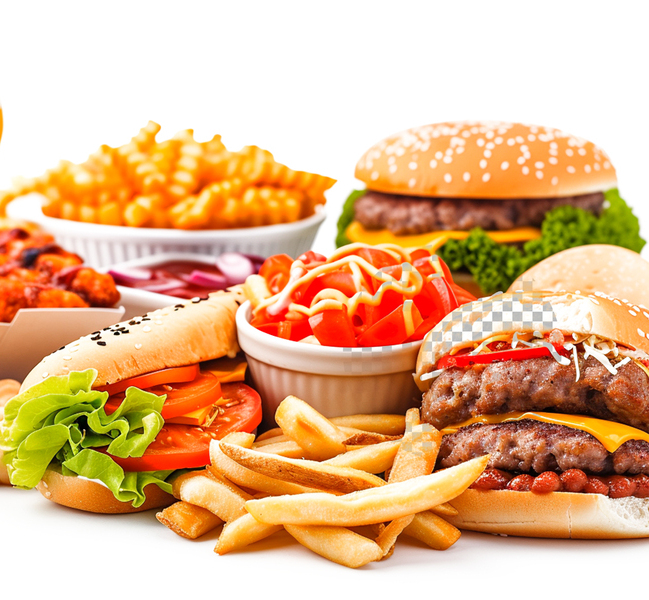

Processed foods are everywhere. From frozen dinners to sugary snacks, they’re easy to find and quick to eat. But have you ever wondered why these foods might make you gain weight, even when you're not eating huge portions? There is help for weight loss management. The Wellness Restoration Center breaks it down simply so you can understand how processed foods affect your body and weight.
Before discussing how processed foods might make you fat, it’s essential to understand what they are. Processed foods are any foods that have been altered from their natural state. Some processed foods are still healthy, like frozen vegetables or canned beans. However, when discussing processed foods that might make you gain weight, we usually refer to those high in sugar, salt, and unhealthy fats, like chips, cookies, and fast food.
One of the main reasons processed foods can make you fat is because they are often high in calories but low in nutritional value. These "empty" calories don’t give your body the nutrients it needs, like fiber, protein, or vitamins. Instead, they leave you craving more food because your body isn’t satisfied.
When trying to follow a weight loss management plan, it is crucial to eat foods that keep you full and satisfied for longer periods. Processed foods, on the other hand, often leave you feeling hungry shortly after eating, causing you to eat more and gain weight over time.
Sugar is one of the biggest culprits in processed foods. Many foods we grab for a quick snack, like candy bars or sugary drinks, are loaded with sugar. When you eat sugar, your body quickly digests it, leading to a spike in your blood sugar levels. This spike is followed by a crash, leaving you tired and hungry again.
Schedule your appointment with Dr. Marcia A. Harris, MD today to find out more about these life-changing modalities. Don’t let ED rule your LIFE! Call for an appointment today!
BOOK AN APPOINTMENTThis spiking and crashing blood sugar cycle can make you want to eat more, leading to weight gain. A weight loss doctor recommends reducing sugar to help manage your weight and avoid this cycle. Reducing sugar can also help keep your energy levels stable so you don’t feel those intense cravings for unhealthy snacks.
According to researchers, an additional reason processed foods might make you fat is their addictive ingredients. Scientists have demonstrated how certain combinations of sugar, fat, and salt can trigger pleasure centers in your brain, leading to overeating even when you don't need food!
Are your cravings making weight management hard? If they do, consulting with a weight loss doctor might provide personalized strategies and advice that may help control these urges and decrease overeating and weight gain.
Processed foods are often low in fiber, which is essential for weight management. Fiber helps you feel full and satisfied after eating. When you eat a diet high in processed foods, you might need more fiber, causing you to feel hungry more often and eat more than you need.
Fiber can be found in foods like fruits, vegetables, and whole grains, typically lacking in our processed diets. Switching out processed food for whole-food sources of fiber may make an enormous difference in weight management, helping us feel full longer while decreasing overeating risk.
Processed foods can lead to weight gain by concealing hidden fats and calories. Many processed foods are loaded with trans and saturated fats, contributing to weight gain and other health concerns; unfortunately, these unhealthy fats often remain undetected in foods that do not taste particularly fatty, like baked goods, crackers, or ready-made meals.
Processed food may also contain hidden calories through added sugars and oils that you might be unaware of - fooling you into believing you're having a nutritious meal when there may be hidden extra calories you weren't even aware existed!
To prevent weight gain caused by processed food, aim to consume whole and unprocessed foods as much as possible. These nutritious options will keep you full without adding unnecessary calories and ingredients that might compromise your health.
Your goal should not be to avoid all processed food completely, but being aware of how much and choosing healthy options could make an incredible difference in how successful weight loss efforts will go. Consulting a weight loss doctor could greatly assist in creating a plan tailored specifically for you to reach your desired goals.
Processed foods might be convenient and tasty, but they can significantly impact weight. Their high sugar content, hidden fats, and calories can make it harder to stick to a weight loss management plan.
Type 2 diabetes is a chronic…
Impotence, or erectile dysfunction, can take a heavy toll on…
If you’re living with chronic pain,…
In this collection of heartfelt testimonials, patients of The Wellness Restoration Center share their personal stories of transformation and healing.